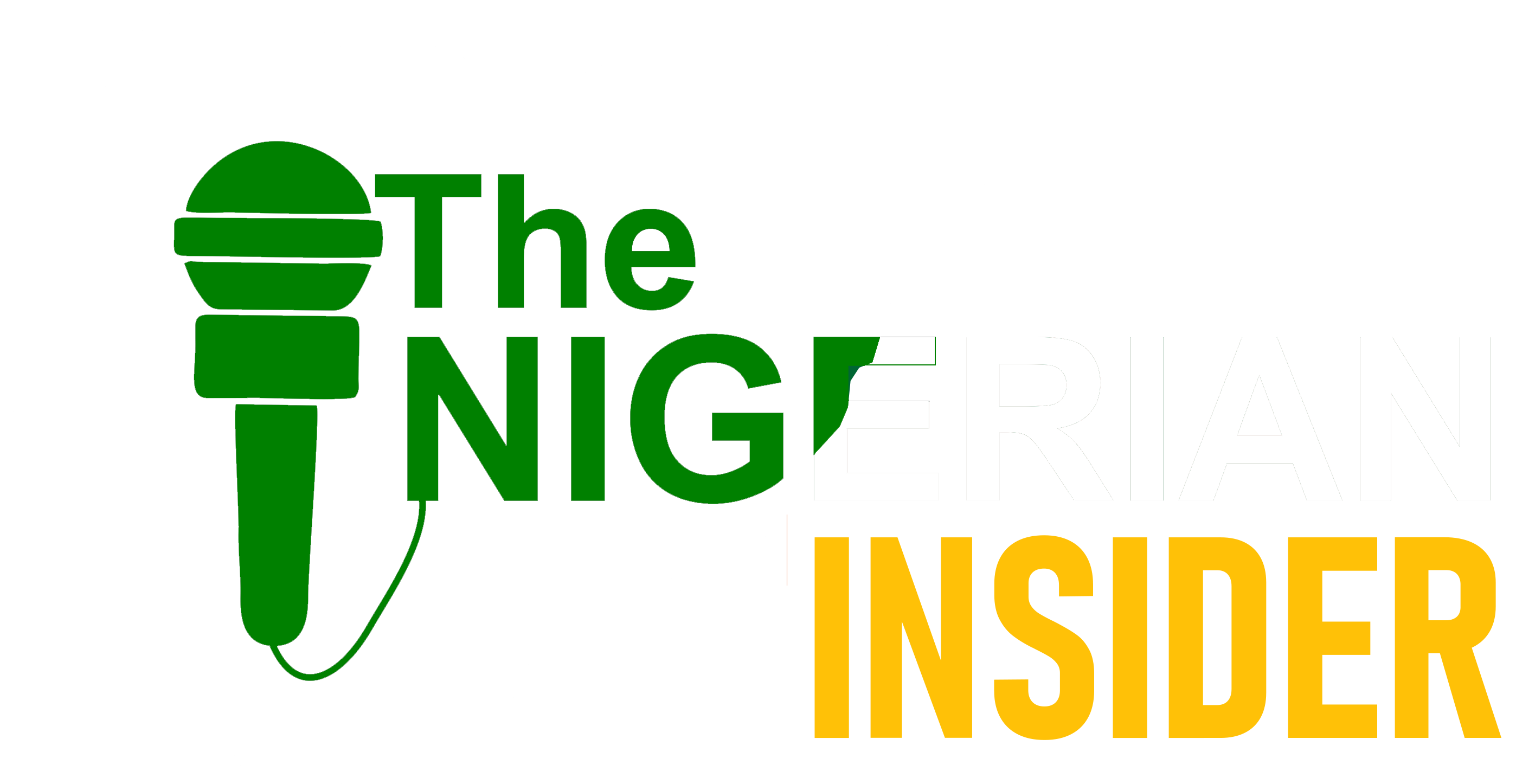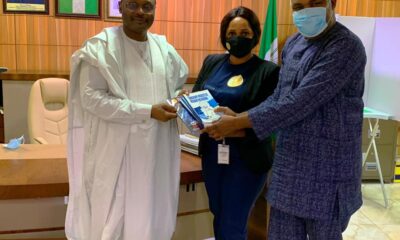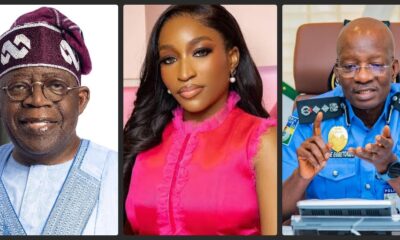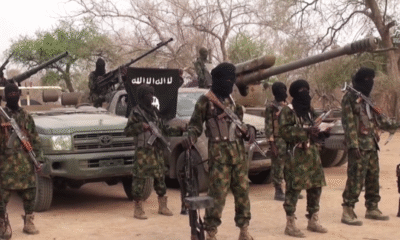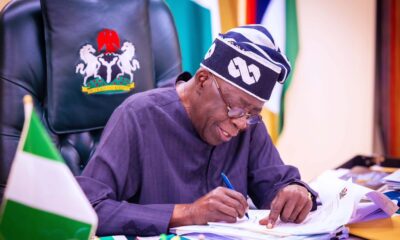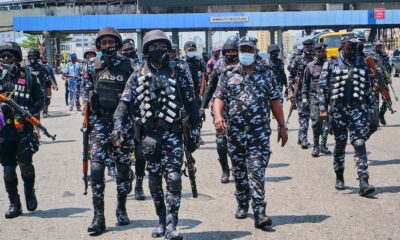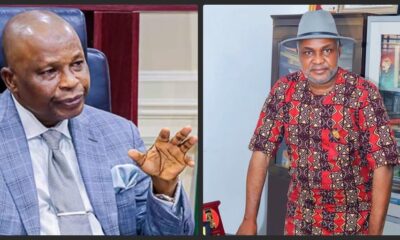World
Donald Trump and The Nigerian expectations – By Emmanuel Onwubiko

The 45th President of the United States of America, Mr. Donald John Trump, will be staging a triumphant comeback to the prestigious and powerful office of the White House on January 20, 2025 (Monday), as the 47th President of the USA.
Sacred oath-taking, musical performances, and a celebratory parade are some of the epochal events lined up for the presidential inauguration.
The British Broadcasting Corporation defines the presidential inauguration as the formal ceremony that marks the end of one president’s time in office and the start of their successor’s administration. In this case, Trump will assume office just as Joe Biden exits after a single term.
A major ceremony during the inauguration, as aforementioned, is the recitation of the oath of office: “I do solemnly swear that I will faithfully execute the office of President of the USA, and will to the best of my ability, preserve, protect, and defend the Constitution of the United States.”
What happens during Inauguration Day on January 20? Trump’s second inauguration day will kick off with a service at St. John’s Church, Lafayette Square—a historic Washington, D.C., church—followed by tea at the White House.
Musical performances and opening remarks are set to begin on the main event stage, located on the West Lawn of the U.S. Capitol Building, at 9:30 AM EST (2:30 PM GMT).
This will be followed by the swearing-in of Trump and Vance, as well as the inaugural address, during which the president will outline his goals for the next four years.
Trump will then head inside to the President’s Room near the Senate chamber to sign key documents. He will subsequently attend a lunch hosted by the Joint Congressional Committee on Inaugural Ceremonies.
This will be followed by a parade that goes from the Capitol Building down Pennsylvania Avenue to the White House. Later in the evening, Trump will appear at three inaugural balls throughout the city—the Commander-in-Chief Ball, the Liberty Inaugural Ball, and the Starlight Ball. He is expected to speak at all three.
Who will perform? Country singer and former American Idol winner Carrie Underwood is slated to perform America the Beautiful during the ceremony.
“I love our country and am honored to have been asked to sing at the inauguration and to be a small part of this historic event,” Underwood said in a statement. “I am humbled to answer the call at a time when we must all come together in the spirit of unity and look to the future.”
Country singer Lee Greenwood—Trump’s long-time friend and collaborator—will also perform at the inauguration ceremony, as will opera singer Christopher Macchio.
American disco group The Village People will perform at Trump’s victory rally on Sunday and at one of the inaugural balls on Monday.
During the campaign, Trump frequently played the group’s songs—YMCA and Macho Man—at his rallies.
“We know this won’t make some of you happy to hear; however, we believe that music is to be performed without regard to politics,” the band said in a post on its Facebook page. “Our song YMCA is a global anthem that hopefully helps bring the country together after a tumultuous and divided campaign where our preferred candidate lost.”
Other performers are set to appear at Trump’s Sunday rally and the evening balls. Many of them are country acts, including Kid Rock, Billy Ray Cyrus, Jason Aldean, and Rascal Flatts. Gavin DeGraw will also perform.
Our reflection is set out to establish an African and Nigerian agenda for President Donald Trump’s second term in office. What is the current volume of trade between Nigeria and the United States?
The Nigeria Trade & Investment Summary shows that U.S. goods and services trade with Nigeria totaled an estimated $10.6 billion in 2022. Exports were $5.2 billion, and imports were $5.4 billion. The U.S. goods and services trade deficit with Nigeria was $177 million in 2022.
U.S. goods exports to Nigeria in 2022 were $3.4 billion, down 13.6 percent ($530 million) from 2021 and down 33 percent from 2012. U.S. goods imports from Nigeria totaled $4.8 billion in 2022, up 38.9 percent ($1.3 billion) from 2021, but down 75 percent from 2012. The U.S. trade balance with Nigeria shifted from a goods trade surplus of $446 million in 2021 to a goods trade deficit of $1.4 billion in 2022.
U.S. exports of services to Nigeria were an estimated $1.9 billion in 2022, 17.6 percent ($277 million) more than in 2021, and 0 percent less than 2012 levels. U.S. imports of services from Nigeria were an estimated $607 million in 2022, 38.0 percent ($167 million) more than in 2021 and 21 percent greater than 2012 levels. Leading services exports from the U.S. to Nigeria were in the travel, financial services, and transportation sectors. The United States had a services trade surplus of an estimated $1.2 billion with Nigeria in 2022, up 9.7 percent from 2021.
U.S. foreign direct investment (FDI) in Nigeria (stock) was $5.6 billion in 2022, a 6.4 percent decrease from 2021. U.S. direct investment in Nigeria is led by mining, information services, and professional, scientific, and technical services.
Nigeria’s FDI in the United States (stock) was $168 million in 2022, up 6.3 percent from 2021. Strengthening this bilateral trade relationship is therefore strategic and urgent.
The Institute for Security Studies, in a report dated December 9, 2024, warned that Africa must prepare for Trump’s comeback and further added that the Black continent should brace for surprises from Donald Trump’s second coming.
It asked: how will Donald Trump’s second-term policies affect U.S. relations with the continent?
The Institute of Security Studies affirmed that President Joe Biden’s recent trip to Angola—the first state visit by a U.S. president in nine years—highlighted America’s renewed engagement with Africa. But as Donald Trump prepares for his second term in office, questions arise about the future of U.S.-Africa relations and whether this engagement will continue.
The Institute of Security Studies reminds us that Trump’s first term, characterized by an inward-focused America First agenda, showed the need for Africa to recalibrate its strategies—particularly in key geopolitical and security engagements. Several critical issues at bilateral, regional, and continental levels will be impacted by his second-term policies and the priorities of his inner circle.
Trump’s return presents African countries with an opportunity to take a proactive stance in shaping their political and economic relations with the U.S. and developing resilient strategies instead of reacting to shifting U.S. policies.
Key bilateral relationships, particularly between the U.S. and South Africa, are expected to shift—stemming from U.S. opposition to South Africa’s International Court of Justice (ICJ) case against Israel over Gaza and the country’s close ties with China and Russia.
In the area of insecurity and the war on terrorists, a typical Nigerian should be asking that Donald Trump’s second coming shouldn’t overlook some of the basic technical military assistance that Nigeria has been benefitting from through the magnanimity of the government and people of the United States. At the same time, Nigerians should expect that the Nigerian government’s commitments in the area of respect for human rights become binding, obligatory, and enforceable in total adherence to the provisions of Chapter 4 of the Constitution of the Federal Republic of Nigeria, the Universal Declaration of Human Rights, the Covenant on Civil and Political Rights, and all other humanitarian treaties.
As a Nigerian citizen, I expect that the incoming American president should not abandon the global role of the U.S. as the universal promoter of human rights and democracy. While President Donald Trump’s presidency emphasizes the issue of America First, the position of the U.S. as a world power would diminish should it abandon the pursuit of global democracy and respect for human rights. The ball is in the court of President Donald John Trump.
Emmanuel Onwubiko is the founder of the Human Rights Writers Association of Nigeria and was a National Commissioner of Nigeria’s National Human Rights Commission.
News
Trump’s New Tariff Order: Complete List of Affected Countries
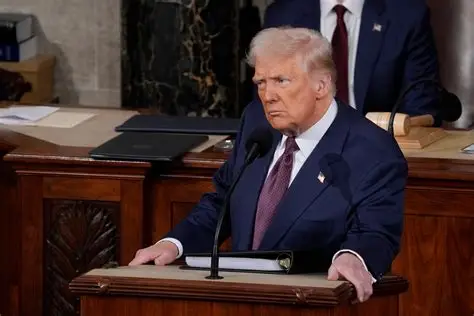
President Donald Trump of the United States has enacted a 15 percent import tariff on goods from Nigeria as part of a wider executive order that targets numerous countries within a revised global trade framework. The updated tariff list was revealed by the White House on Thursday, concluding a 90-day extension granted in April to negotiate specific trade agreements. Initially, Nigeria faced a 14 percent tariff, but its implementation was postponed to allow for further discussions.
The updated order raises Nigeria’s tariff to 15 percent, affecting several African and non-African nations. According to the White House, this action aligns with Trump’s policy of “reciprocal tariffs,” which is designed to counter what the administration views as unfair trade practices by US partners. Efforts to negotiate customized trade agreements with African states reportedly did not yield positive outcomes. As the new deadline arrived, the US had failed to establish any trade pacts with any African nation.
In the aftermath of the initial announcement, several countries sought alternative arrangements or exemptions. However, US officials pointed to a lack of progress to justify the execution of the new tariff schedule.
Yusuf Tuggar, Nigeria’s Foreign Affairs Minister, recognized the region’s initiatives to strengthen trade with the US, but noted that travel restrictions imposed during the negotiation period complicated diplomatic efforts. “Nigeria and West African nations worked towards enhancing trade relations with the United States,” Tuggar stated. “However, the travel bans and wider restrictions impeded the process.”
Other countries subjected to the 15 percent tariff include Angola, Ghana, Mozambique, Uganda, Israel, South Korea, and Norway. More substantial tariffs were introduced for countries like India (25%), South Africa (30%), and Switzerland (39%), while some countries, such as Syria, faced tariffs exceeding 40%.
This latest trade order by Trump also impacts the US’s North American neighbors. Canada now faces a 35 percent tariff, while Mexico is subject to a range of tariffs from 25 to 50 percent on various goods, including automobiles, metals, and fentanyl-related products. Brazil, which was initially assigned a 10 percent tariff, now faces a dramatic increase to a 50 percent rate following a separate announcement made on Thursday.
Negotiations with China are still in progress, with no new tariff rate declared for Beijing under the current order.
Complete List of Countries and Corresponding US Import Tariffs Under President Donald Trump’s Revised Trade Order, Announced on August 1, 2025:
10% Tariff
- Falkland Islands
- United Kingdom
- All other countries not specified in the executive order
15% Tariff
Africa:
- Angola
- Botswana
- Cameroon
- Chad
- Côte d’Ivoire
- Democratic Republic of the Congo
- Equatorial Guinea
- Ghana
- Lesotho
- Madagascar
- Malawi
- Mauritius
- Mozambique
- Namibia
- Nigeria
- Uganda
- Zambia
- Zimbabwe
Americas:
- Bolivia
- Costa Rica
- Ecuador
- Guyana
- Trinidad and Tobago
- Venezuela
Asia & Pacific:
- Afghanistan
- Fiji
- Israel
- Japan
- Jordan
- Nauru
- New Zealand
- North Macedonia
- Papua New Guinea
- South Korea
- Turkey
- Vanuatu
Europe:
- Iceland
- Liechtenstein
- Norway
18% Tariff
- Nicaragua
19% Tariff
- Cambodia
- Indonesia
- Malaysia
- Pakistan
- Philippines
20% Tariff
- Bangladesh
- Sri Lanka
- Thailand
- Taiwan
- Vietnam
25% Tariff
- Brunei
- India
- Kazakhstan
- Moldova
- Tunisia
30% Tariff
- Algeria
- Bosnia and Herzegovina
- Libya
- South Africa
35% Tariff
- Iraq
- Serbia
- Canada
39% Tariff
- Switzerland
40% Tariff
- Laos
- Myanmar (Burma)
- Brazil (an additional 40% tariff added on August 1, raising Brazil’s total to 50%)
41% Tariff
- Syria
Special Tariffs (Mexico)
- 25% on fentanyl-related products
- 25% on automobiles
- 50% on steel, aluminium, and copper (effective in 90 days)
China
- No rate announced yet
- Currently engaged in ongoing negotiations with the Trump administration
Foreign
Nigerian caught for visa fraud faces life ban- USA
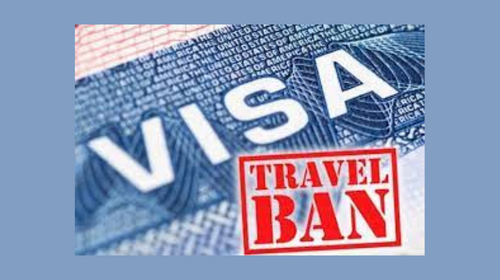
The United States government has issued a stern warning to Nigerians about the repercussions of engaging in visa fraud and illegal immigration, stating that such actions could lead to a permanent ban on obtaining a visa. This warning was shared in a post on the official X page of the U.S. Mission in Nigeria.
“Individuals who commit visa fraud will face a lifetime ban from entering the United States,” the statement highlighted. It also emphasized, “A nation without borders is not a nation,” illustrating the U.S. government’s ongoing dedication to securing its borders and enforcing strict immigration regulations.
Furthermore, the U.S. has indicated that it will actively seek criminal charges against those involved in visa-related offenses, including individuals who assist or shelter undocumented migrants. This involves sponsors, agents, and smugglers who contribute to the rise of illegal immigration, a practice that has become increasingly prevalent in parts of West Africa.
This warning comes as concerns grow over the increasing number of Nigerians attempting to enter the United States through fraudulent means.
In recent years, U.S. immigration officials have reported numerous incidents involving fake documents, marriage fraud, and misrepresentation during visa interviews. These actions not only threaten the integrity of the U.S. immigration system but also put individuals at risk of detention, deportation, or prosecution.
Several African nations have recently encountered visa restrictions or travel bans from the United States. Initially, countries like Chad, the Republic of Congo, Equatorial Guinea, Eritrea, Libya, Somalia, and Sudan were subject to a travel ban. More recently, Burundi, Sierra Leone, and Togo faced partial restrictions.
Nigeria, Ghana, Cameroon, and Ethiopia have also seen a reduction in the validity of certain visas, often attributed to security issues, insufficient cooperation on deportation matters, and inadequate identity verification processes.
Additionally, the U.S. has mandated that the social media accounts of all foreigners applying for visas will be examined for any signs of hostility towards the country’s citizens, culture, government, institutions, or foundational principles.
Nigerians are encouraged to refer to official resources, such as the U.S. Embassy or Consulate websites, for reliable information regarding visa applications.
World
Tragic Fire Claims 60 Lives at Iraqi Shopping Center
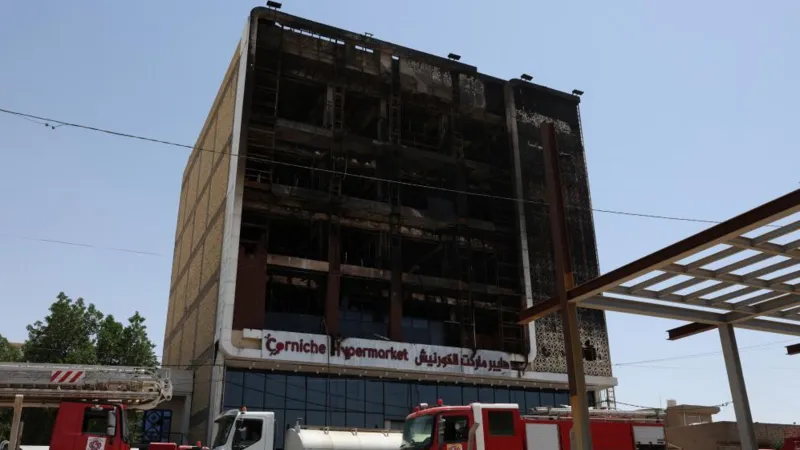
At least 60 people have lost their lives in a devastating fire at a shopping center in Kut, Iraq, according to officials. The incident occurred at the Corniche Hypermarket on Wednesday night and has since been contained. Eyewitness accounts and social media footage captured firefighters rescuing individuals from the roof, while many others remain unaccounted for.
Regional governor Mohammed al-Miyahi expressed deep sorrow over the tragedy, stating that legal action would be initiated against the mall’s owner. Videos broadcasted on INA’s news channel depicted intense flames engulfing multiple floors of the shopping center as firefighters battled to extinguish the blaze. Other clips circulating online showed some people on the roof during the incident and the charred remains of the mall’s interior.
Firefighters managed to rescue several individuals from the burning building, al-Miyahi reported to local media. Emergency services were still transporting victims to hospitals in the city, which is located approximately 160 km (100 miles) southeast of Baghdad, as late as 4:00 AM local time.
The interior ministry’s statement quoted by AFP confirmed the tragic toll of the fire, revealing that 61 innocent people had perished, most succumbing to smoke inhalation in bathrooms, with 14 of the deceased yet to be identified. Nasir al-Quraishi, a local doctor in his 50s, mournfully shared that he lost five family members in the fire. “We went to the mall to have some food, eat dinner and escape power cuts at home. An air conditioner exploded on the second floor, and then the fire erupted, leaving us with no means of escape,” he recounted.
A medical source added, “We have more than 50 martyrs, and many bodies remain unidentified.” An investigation is currently in progress to determine the cause of the blaze, with preliminary results expected in the next two days. Al-Miyahi stated the incident should serve as a wake-up call, leading to a thorough review of safety protocols.
The shopping had opened just five days ago, AFP reported.
source: BBC
-

 News10 months ago
News10 months agoNUJ FCT Council Mourns The Loss of Senior Journalist, Isaiah Abraham
-
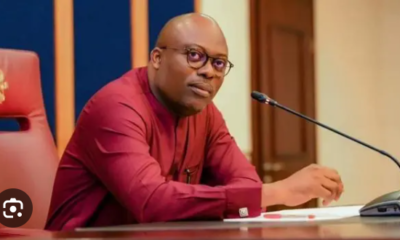
 News10 months ago
News10 months agoHURIWA Declares Governor Fubara’s Emergence as Divine, Urges Support for Rivers State’s Progress
-
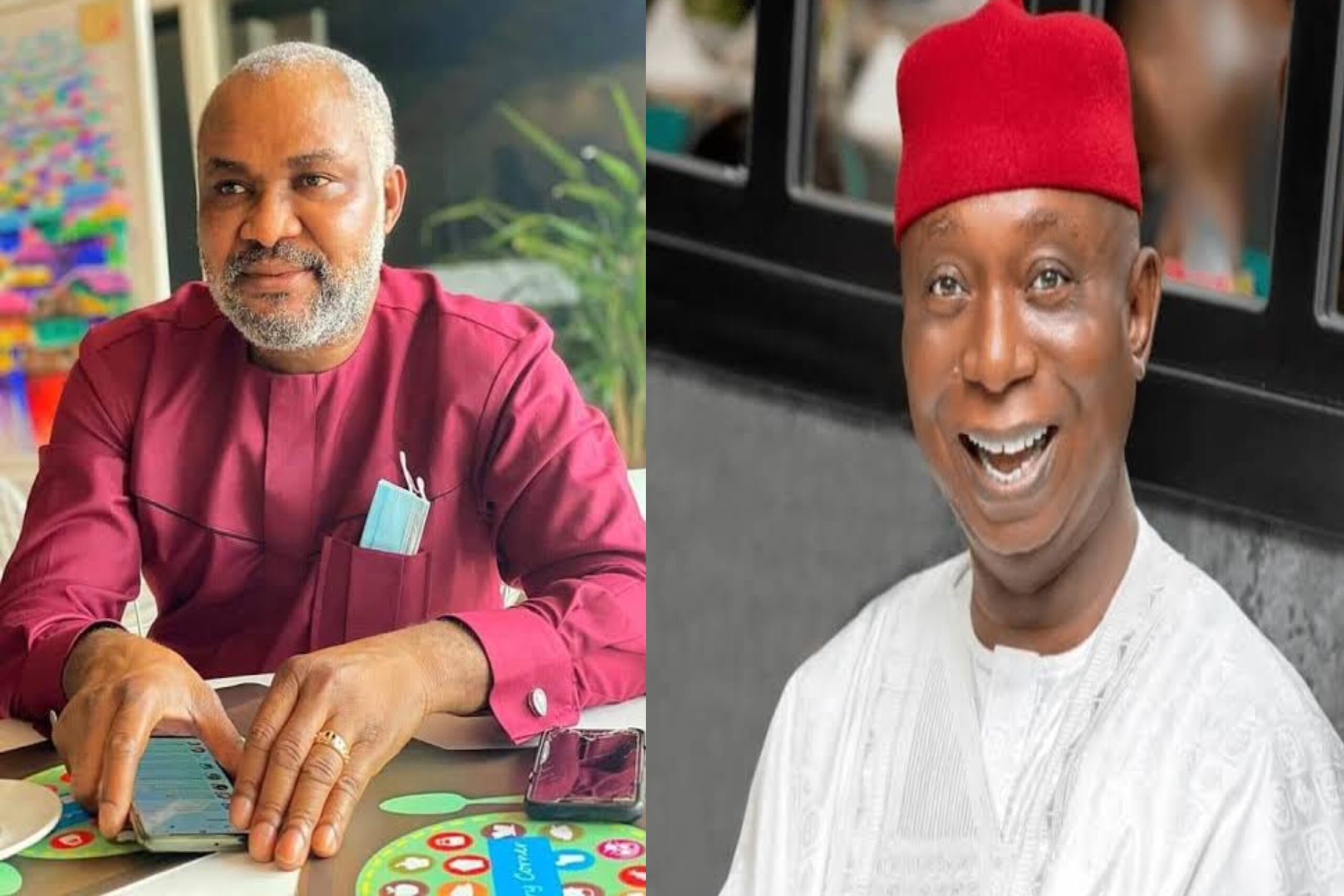
 News10 months ago
News10 months agoAnioma State as panacea to South-East marginalization – By Emmanuel Onwubiko
-

 Opinion8 months ago
Opinion8 months agoNIGERIAN WOMAN IN DIASPORA, CULTURAL SHOCKS – By Stacey Ukaobasi Onwuegbuchulam
-
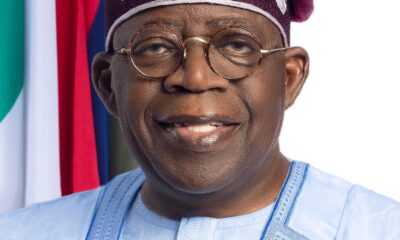
 News11 months ago
News11 months agoHURIWA Blames Serial Stampedes on Weaponized Poverty, Warns of Nigeria’s Rapid Decline
-
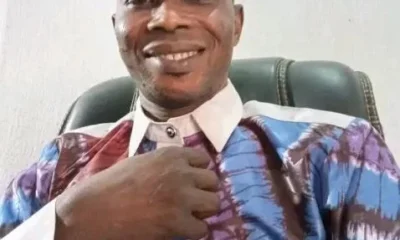
 News10 months ago
News10 months agoJealous Husband Stabs Nigerian Bishop To Death Over Suspicion Of Sleeping With Estranged Wife
-
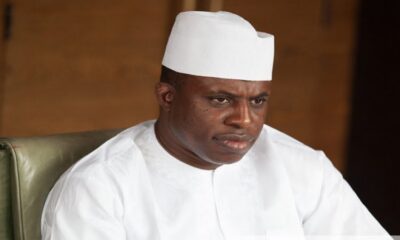
 News10 months ago
News10 months agoTinubu sympathizes with ex-speaker Bankole on the death of his mother
-
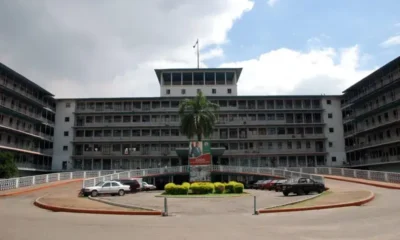
 Health8 months ago
Health8 months agoA complete list of 154 healthcare facilities across Nigeria that provide free emergency obstetric care and VVF (Vesico-Vaginal Fistula) surgeries.
